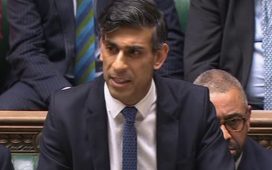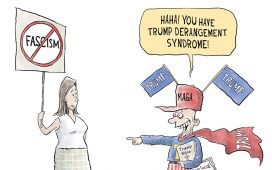Boris Johnson is expected to sign off sweeping new quarantine rules for travellers in airport hotels on Tuesday as cabinet ministers rebuffed pressure from Tory MPs to set out a timetable for the easing of lockdown.
In what Downing Street said was a more cautious approach since England’s third lockdown, a No 10 source said: “We don’t ever want to unlock anything if we have to lock it again.” It may mean coronavirus travel curbs and other restrictions remaining in place for months.
The hotel quarantine measure, which government sources said may take “weeks rather than days” to implement, would be an “effective closure of our borders”, the airline industry said.
Ten-day stays are expected to cost upwards of £1,000 for each traveller. Some countries, which imposed similar regimes from March last year, charge many thousands for accommodation, board and security, with occupants confined to their rooms, including for exercise.
Ministers had previously discussed limiting hotel quarantine to “hotspot” countries, including South Africa and parts of South America, but Whitehall sources said that was now likely to be expanded to a blanket quarantine policy for all arrivals, or a wider targeted approach, which still may cover entire continents, such as South America.
A final decision will be made by cabinet ministers at a Covid-O meeting on Tuesday, with the prime minister presented with several options. Details yet to be confirmed include the cost and whether a “test to release” policy will operate, like the measure which now allows travellers to leave quarantine if they test negative after five days.
A blanket policy covering all travellers is favoured by the home secretary Priti Patel and the health secretary Matt Hancock, and backed by the chancellor Rishi Sunak – though he has said he needs to see a plan of how to taper off the policy. Grant Shapps, the transport secretary who has been cautious about the workability of the policy, has also requested a roadmap for easing the rules.
Hancock said on Monday it was “incredibly important that we are cautious at the border … It is important that we protect from new variants should they have vaccine evasion. And it is also reasonable to take a precautionary principle to protect this country whilst we work on the science and the analysis of the different variants that are discovered around the world”.
Johnson also hinted that he favoured more comprehensive restrictions, saying the policy should provide “the maximum possible protection against reinfection from abroad”.
On Monday the UK recorded 22,195 further cases – the lowest daily figure for more than a month. The numbers have not been this low since 20,263 new cases were recorded on 14 December. Week on week, new cases have fallen by 25%. There were 592 reported deaths.
The expected quarantine rules could prompt a scramble of returns to the UK before they are introduced. The aviation industry warned the policy would be “catastrophic” for the sector.
A Heathrow airport spokesperson said Sunak must provide a comprehensive financial support package for UK aviation including full rates relief and the extension of furlough while the policy remains in place.
In a joint statement, the Airport Operators Association and Airlines UK said the move would impact freight, including PPE supplies, and said any further measures must be short-term.
Heathrow is understood to be seeing around 6,000 passengers a day, comparable to the depths of the spring 2020 lockdown when around 3% of the normal 200,000 passengers a day travelled through. Current hotel capacity around Heathrow is believed to be around 10,000 rooms though some hotels have been shuttered for months.
Only a handful of inbound flights were operating at the UK’s three next largest airports on Monday – London Gatwick, Stansted and Manchester – with unofficial estimates of as little as 1% of normal passenger traffic arriving, a figure representing just a few hundred people.
Hancock issued a robust warning on Monday that no one in the UK should be travelling, except for extremely limited reasons. “Under this lockdown, it is illegal to travel abroad unless you have a reasonable excuse because it’s illegal to leave your home unless it’s for one of the very small number of reasons set out,” he said.
The move comes with the government under increasing pressure from Conservative lockdown sceptics to set out a roadmap to ease restrictions. Children’s commissioner for England Anne Longfield asked for a timeline for schools to reopen in a letter to Johnson on Monday.
A Whitehall source said England’s chief medical officer Chris Whitty and the chief scientific adviser Patrick Vallance had advised it was not yet safe to make any changes to the current lockdown.
Johnson was among a number of cabinet ministers who publicly resisted calls to set out a timeline for restrictions to ease, though a No 10 source said that would happen as soon as feasible.
The prime minister suggested the government would be “looking at the potential of relaxing some measures” before the review date of 15 February, a slip-up that caused a flurry of speculation.
Downing Street sources said Johnson meant the government would look at the evidence and that no restrictions would be lifted before 15 February. The prime minister also gave no commitment that schools would reopen by Easter but added that people “shouldn’t assume” that they definitely would not.
“When we announced this lockdown, the PM made it clear schools would be the first things we would look to unlock,” a No 10 source said. “We do not want to unlock anything if we have to lock it again. Everything we say makes that clear.”














